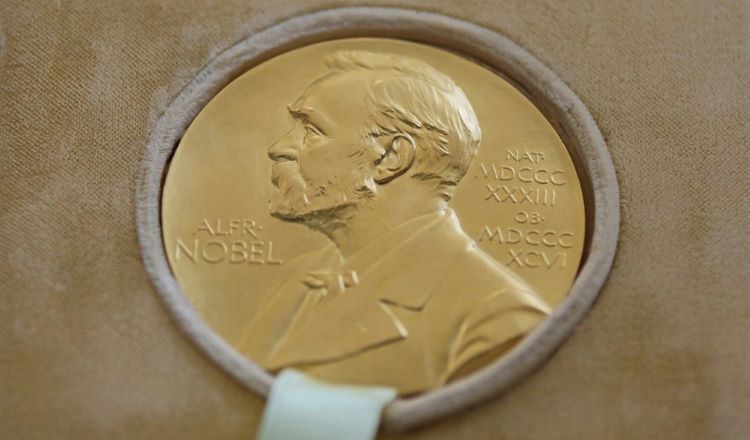mRNA researchers awarded 2023 Nobel Prize
Posted: 2 October 2023 | Catherine Eckford (European Pharmaceutical Review) | 1 comment
The Nobel Prize in Physiology or Medicine 2023 has been awarded to two researchers who were instrumental in helping to curb the COVID-19 pandemic, through their discoveries in mRNA base modifications.


Credit: LCV / Shutterstock.com
The Nobel Assembly has awarded Hungarian biochemist Katalin Karikó and US immunologist Drew Weissman the Nobel Prize in Physiology or Medicine 2023 for their breakthrough findings in RNA vaccine development. The discoveries by the two Nobel Laureates have revolutionised science’s understanding of how messenger RNA (mRNA) interacts with the immune system.
The discovery was critical for developing effective mRNA vaccines during the COVID-19 pandemic.
While researchers have worked to produce vaccine technologies independent of cell culture, this has been challenging, due to the resource-intensive requirement for large-scale cell culture. As a result, historically, the possibilities for rapid vaccine production in response to outbreaks and pandemics has been limited.
Where the ground-breaking research on mRNA began
In the 90s, Katalin Karikó and Drew Weissman were investigating how different RNA types interacted with the immune system, the Nobel Foundation reported.
The organisation stated that in their research, Karikó and Weissman noticed that dendritic cells recognise in vitro transcribed mRNA as a foreign substance. This leads to their activation and the release of inflammatory signalling molecules. They questioned why the in vitro transcribed mRNA was recognised as foreign while mRNA from mammalian cells did not result in the same reaction.
Nucleoside bases in RNA from mammalian cells are frequently chemically modified, while in vitro transcribed mRNA is not, the Nobel Foundation stated. According to the institution, Karikó and Weissman considered whether the absence of altered bases in the in vitro transcribed RNA could provide reasoning for the unwanted inflammatory reaction.
Karikó and Weissman went onto produce different variants of mRNA, each with unique chemical alterations in their bases. These were then delivered to dendritic cells. The results showed that the inflammatory response was almost eliminated when base modifications were included in the mRNA.
Through [their] discoveries, Karikó and Weissman opened up opportunity for the pharmaceutical industry to advance mRNA technology”
These data were published in 2005, fifteen years before the COVID-19 pandemic, of which mRNA vaccines were instrumental to controlling.
Through the discoveries, Karikó and Weissman opened up opportunity for the pharmaceutical industry to advance mRNA technology. In 2010, several companies were working on developing the method.
Then, when the COVID-19 pandemic broke, two nucleoside base-modified mRNA vaccines encoding the SARS-CoV-2 surface protein were developed at a rapid pace, noted the Nobel Foundation.
Nobel Prize in Physiology or Medicine 2023 Laureates – their important work in mRNA
“Thanks to the pioneering contributions of Karikó and Weissman, nearly 13 billion doses of mRNA COVID-19 vaccines have been administered worldwide,” Dr Gilles Georges, Vice President and Chief Scientific Officer at CAS explained to EPR.
Ultimately, Karikó and Weissman “demonstrated that changing the type of the RNA nucleotides within the vaccine altered the way in which cells see it. This increased the amount of vaccine protein made following the injection of the RNA, effectively increasing the efficiency of the vaccination: more response for less RNA,” stated Professor John Tregoning, Professor in Vaccine Immunology within the Department of Infectious Disease, Imperial College London. “This was a vital building block of the success of the RNA vaccines in reducing disease and death during the pandemic”.
“Beyond the realm of COVID-19, the agility of the mRNA platform holds immense promise for combating a wide spectrum of infectious diseases, including influenza. It also positions us to be better prepared for any potential future pandemics that may arise… [additionally the] concept of harnessing mRNA in the realm of medicine opens doors to an array of possibilities, including the development of therapeutic vaccines for cancer and innovative mRNA-based therapies for addressing a multitude of genetic disorders,” Dr Georges told EPR.
Katalin Karikó
In 1989, Katalin Karikó was appointed Assistant Professor at the University of Pennsylvania, where she stayed until 2013. Following this tenure, she became Vice President and later Senior Vice President at BioNTech RNA Pharmaceuticals. Since 2021, she has been a Professor at Szeged University and an Adjunct Professor at Perelman School of Medicine at the University of Pennsylvania. She received her PhD from Szeged’s University in 1982.
Drew Weissman
Drew Weissman is the Roberts Family Professor in Vaccine Research and Director of the Penn Institute for RNA Innovations. He established his research group at the Perelman School of Medicine at the University of Pennsylvania in 1997. Weissman received his MD, PhD degrees from Boston University in 1987.
Related topics
Big Pharma, Biopharmaceuticals, Clinical Development, Drug Development, Drug Discovery, Drug Manufacturing, Industry Insight, mRNA, Research & Development (R&D), RNA, Technology, Therapeutics, Vaccines, Viruses
Related organisations
CAS, Imperial College London, The Nobel Foundation, University of Pennsylvania
Related drugs
Related people
Dr Gilles Georges, Drew Weissman, Katalin Karikó, Professor John Tregoning










The mRNA technology, a revolution in vaccine science alongside two highly deserved Nobel Prizes!
The Nobel Prize for Medicine, which has been recently awarded by an ad hoc committee of medical professors from the prestigious Swedish Karolinska Institute to Katalin Karikó, an Hungarian biochemist, and to Drew Weissman, an American immunologist, for their revolutionary discovery of the messanger RNA (mRNA) technology, raises a number of major concern issues.
First of all, the production of anti-SARS-CoV-2 vaccines has greatly benefitted from the mRNA technology, which has made these vaccines available to mankind after just one year (a world Guiness record!) since December 2019, when this pandemic betacoronavirus was recognized for the first time in Wuhan, China. Remarkably, millions of human lives have been saved by mRNA vaccines, with 13 billion doses having been hitherto administered to people on a global scale. In other words, should mRNA technology-based anti-COVID-19 vaccines not be available yet, or should they have alternatively become available years after the first virus identification (as it has always happened before the COVID-19 pandemic), we would almost certainly have had to deal with 3-4 times more deaths than the already catastrophic number of 7 million people hitherto killed by SARS-CoV-2 worldwide!
Still noteworthy, mRNA technology-based vaccines may be easily “reengineered”, thus conferring adequate protection towards the most transmissible, contagious and/or immune-escaping SARS-CoV-2 variants and “Omicron” subvariants, including the recently emerged “Eris” (alias “EG.5”) and “Pirola” (alias “BA.2.86”).
These concepts can be successfully applied also to the production of vaccines against several other human and animal mutation-prone pathogens, either viral or non-viral, including the human immunodeficiency virus (HIV), human and animal influenza viruses and malaria-causing plasmodia.
Alongside these very exciting applications in the fight against human and animal infectious diseases, the mRNA technology holds promise also in the battle against a range of non-infectious disease conditions, including neoplastic, autoimmune and neurodegenerative disorders.
Notwithstanding the above, the mRNA technology had quite a long and complicated “gestation” before its “parturition” on behalf of Katalin Karikó. Indeed, after she moved in 1985 from Hungary to USA to follow a PhD study programme, Professor Karikó experienced a lot of disappointment for several consecutive years, given that nobody replied in a favourable way to her repeated funding requests aimed at developing and improving the mRNA technology.
But, since Fortuna Audaces Iuvat, a lucky happening was waiting for her just behind the corner: that is to say that Professor Karikó and Professor Weissman finally met each other in 1997, in front of a photocopy machine, at Pennsylvania State University!
Together with Drew Weissman, who was working on a vaccine against the AIDS virus (HIV) at that time, Katalin Karikó was able to improve the mRNA technology by incorporating into the RNA nucleotide sequence pseudouridine instead of uridine, with this resulting in a suppression of undesired host’s immune responses.
As a concluding remark, there is an ancient Latin Roman motto that is better than any other in summarizing the touching and exciting life of Katalin Karikó, a brilliant Woman and a top-ranking Scientist: Per Aspera ad Astra!
Giovanni Di Guardo, DVM, Dipl. ECVP,
Retired Professor of General Pathology
and Veterinary Pathophysiology at the
Veterinary Medical Faculty of the
University of Teramo, Italy